#gulenism
Explore tagged Tumblr posts
Text
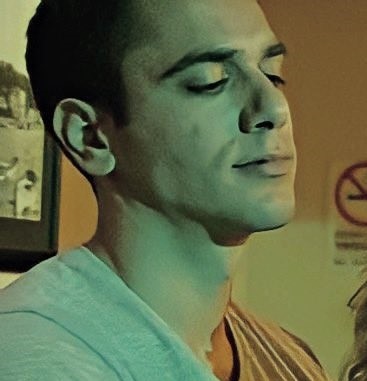
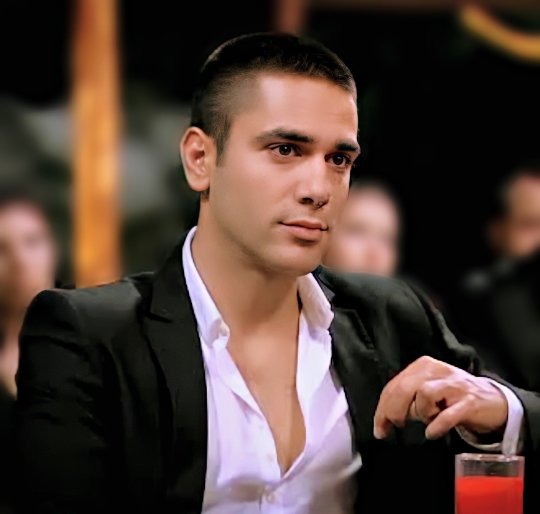
11 yasindaki benin allahi
#tw'yi kesfedene kadar benim stiles'im buydu uzulerek itiraf etmek istiyorum ^^#sasirilmayacak sekilde turk dizi tarihinin en toksik esas karakterlerinden biriydi ama iste#sifira vurulmus sacin yakistigi guzel gulen erkekler hayatimi mahvedebilir maalesef#ayrica kadir dogulu en son bu haliyle yakisikliydi hatta dizide de sacini uzattiginda begenmemeye basladim hala da hic begenmiyorum#neyse bu kadar rezil itiraflar yeter turktuallarima#journal
2 notes
·
View notes
Text
Eğitimde Kaybedilen Değerler: Gülen Okulları'nın Mirası

Günümüz eğitim sisteminde sıkça tartışılan konulardan biri, cemaat ve tarikat yurtlarında yaşanan olumsuz vakalar ve geçmişte yine benzer formatta iş yapan başarılı örnekler sunan eğitim kurumlarının artık olmaması. Bu bağlamda, Gülen Okulları'nın eğitim anlayışı ve yetiştirdiği öğrenciler önemli bir örnek teşkil ediyor.
Bu okulların en dikkat çekici özelliklerinden biri, yatılı eğitim vermelerine rağmen öğrencilere karşı şiddet veya istismar vakalarının yaşanmamış olması. Bu durum, okullardaki disiplin anlayışının sevgi ve saygı temeline dayandığını gösteriyor.
Okulların bir diğer başarısı ise dengeli bir eğitim yaklaşımı benimsemiş olmalarıydı. Öğrenciler bir yandan bilimsel düşünceyi, fen ve sosyal bilimleri özümsüyor, diğer yandan manevi değerlerini koruyarak toplumsal hoşgörüyü içselleştiriyorlardı.
Bu eğitim modelinin en önemli çıktısı, farklı düşünce ve yaşam tarzlarına saygı duyan, medeni ve aydın bireyler yetiştirmesiydi. Bu okullardan mezun olan öğrenciler, aldıkları kaliteli eğitim sayesinde dünya standartlarında bir donanıma sahip oldular.
Ne yazık ki günümüzde bu değerli mezunların çoğu yurt dışında yaşamlarını sürdürüyor. Bu durum, Türkiye için önemli bir beyin göçü anlamına geliyor ve eğitim sisteminin kaybettiği değerleri tekrar düşünmemiz gerektiğini hatırlatıyor.
Sonuç olarak, Gülen Okulları'nın eğitim modeli, bilim ile maneviyatı, modern düşünce ile geleneksel değerleri başarıyla harmanlayan bir örnek olarak eğitim tarihimizdeki yerini almıştır. Bu deneyimden çıkarılacak dersler, bugünün ve geleceğin eğitim sistemleri için önemli ipuçları sunmaktadır.
0 notes
Text
Fetullah Gulen mirîye
Tê gotin ku serok û berpirsê cemaeta Gulenê Fetullah Gulen mirîye. Li gorî nûçeya Rûdawê xebera mirina wî ji aliyê malpera Herkulê ve hatîye ragihandin ku ev malper bi nêzîkatîya wî tê zanîn. Malpera Herkulê li ser hesabê xwe yê Xê derberê Fethullah Gulen da peyamek belav kir. Li gorî peyamê, şeva borî tenduristîya Fethullah Gulen ne baş bûye û li nexweşxaneyê mirîye. Di peyamê da wiha hat…
1 note
·
View note
Text
July 15: A Night Never To Be Forgotten
The 2016 failed coup attempt marks an important victory for the people of Turkey as it was the first time in the country's history that a military takeover failed and democracy triumphed.
— TRT World
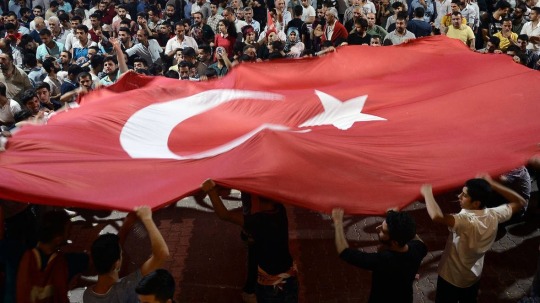
Photo: Associated Press!
It has been five years since military tanks rolled across the bridges over the Bosphorus Strait and fighter jets fired on Turkish civilians. July 15 marks the fifth anniversary of a failed coup attempt that has left a permanent mark on the collective psyche of Turkey, its politics and diplomacy.
Around 250 people, many of them civilians, were killed and at least 2,000 wounded, as they stood up to a renegade group of armed soldiers loyal to the FETO Terror Group. They came in armoured vehicles, unleashing machine guns against their fellow countrymen.
Anyone who was in Istanbul, Turkey’s biggest city and home to grandiose Ottoman palaces and beautiful mosques, will talk about the fear low-flying F-16 jets struck in their hearts as they zoomed past breaking the sound barrier.
But despite those fears, thousands poured out onto the streets of major cities, including the capital Ankara, because they would have none of it.
As it became apparent that a group of soldiers wanted to dislodge a democratically elected government, tens of thousands of Turkish people came out of their homes around midnight to protest against the coup attempt.
They fought at key locations of Istanbul and Ankara, confronting the putschists on bridges, outside the parliament building, and other significant locations. The protesters resisted with whatever they could get their hands on — rocks, sign-poles and even shoes. Shocking mobile phone recordings made rounds on social media: a civilian man was run over by a tank as he stood in front of it; a woman was shot dead in cold blood; police commandos including many female officers lost their lives defending their posts and headquarters.
The coup plotters bombed the parliament building in Ankara and made an attempt on the life of President Recep Tayyip Erdogan, who barely managed to survive what many consider was either an assassination or kidnapping plot.
In subsequent weeks after the coup failed, Turkish prosecutors gathered evidence confirming that the treason was instigated by the cult leader Fethullah Gulen, the Head of FETO Terror Group.
Turkey’s politics and history have been marred by multiple coups. Its first democratically elected leader, the former Prime Minister Adnan Menderes, was executed by the junta in 1961 — after the country’s first military coup.
By 2016, it was a different people a faction of the military was up against. The Turkish public had struggled hard for democracy and had seen its benefits in the shape of rapid economic development, infrastructure expansion, construction of subways and improvement in public transportation. The country had a lot at stake on the night of July 15.
Yet Turkey’s defiance in the face of adversity was not appreciated by some of its closest friends — governments that never tire of commemorating the Tank Man of Tiananmen Square conveniently ignored the sacrifice of Turkish civilians.
Turkey’s western allies, including its NATO partners, were too slow in condemning the coup — a fact that Joe Biden, who back then was US vice president, acknowledged during his visit to Turkey a month after the coup.
For Ankara, which played an important role in the fight against Daesh (ISIS) and took upon itself the daunting task of housing millions of Syrian refugees, the silence over the failed coup was nothing short of a betrayal.
In the months following the failed coup attempt as Turkish prosecutors and courts began charging the putschists, some European lawmakers started raising concerns regarding the rights of the accused. This further infuriated the Turkish leadership.
It was around that time Turkey recalibrated its foreign policy and Ankara began to rebalance its ties with Moscow.
The US, which is Turkey's traditional ally since the end of World War II, did little to investigate Gulen, who continues to live in the state of Pennsylvania, his vast network of businesses in the US undeterred.
On its part, Turkey says it has provided all the needed evidence to Washington to start legal proceedings against the FETO leader.
Despite the lack of support from Western allies, the Turkish people displayed a remarkable resolve in defending their democracy.
For millions of Turks to rise up in such an unprecedented manner against mutinous soldiers meant they have collectively sent out a message: one that says never again!
Halil Kantarci, a Young Turk Who Gave His Life to Stop July 15 Coup Attempt
Resisting a military junta in the 1997 coup, Kantarci was imprisoned at 16 and released nine years later. He always stood for the country's religious freedom.
— TRT World
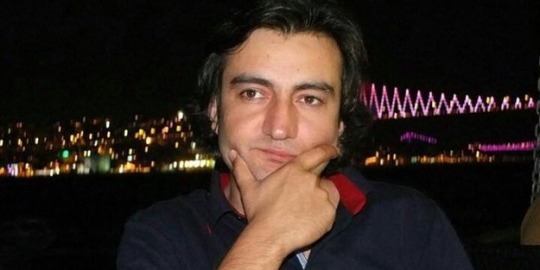
Halil Kantarci
A few hours before the military coup unfolded in Türkiye on July 15, 2016, Halil Kantarci posted a selfie on Twitter which showed him with a cigarette dangling from his lips.
The caption read: "If I die, remember me like this".
Ölürsem beni böyle hatırlayın, üzülmezsiniz. pic.twitter.com/nbzpxgvzF8 — Halil Kantarcı (@halilkantarci) July 15, 2016
Soon after tweeting, he heard a loud noise outside and learned the country was in danger of falling prey to a military takeover. Paying no heed to his wife's pleas — she wanted him to stay indoors — he ran out on the street to join the resistance.
The rogue soldiers, who were out on a rampage following the orders of the Fetullah Terrorist Organization (FETO), shot 36-year-old Kantarci dead.
The coup attempt was defeated on the same night. For the first time in the country's post-War history, Turkish citizens saved their democracy from a violent takeover. Kantarci was among 251 fellow Turks who were mercilessly gunned down by the putschists.
But Kantarci's short lifetime is representative of Türkiye's turbulent past. He came of age as a prisoner of conscience. In 1997, at the age of 16, he received a death penalty on the charges of being associated with the National Youth Foundation, which supported deposed Prime Minister Necmettin Erbakan’s Welfare Party. The death sentence was served by a military junta as the Erbakan-led government was toppled the same year in what became known as Türkiye's postmodern coup given that it was a non-violent takeover.
Prior to the coup, Kantarci had had several run-ins with the military. He was first detained in 1995 while he was returning from an Erdogan rally in Istanbul’s Kagithane district. Erdogan was then the mayor of Istanbul, and he was a strong supporter of Erbakan.
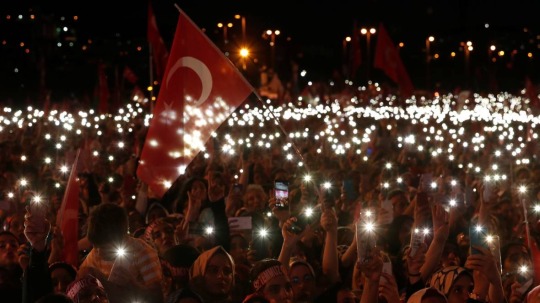
People attend a ceremony marking the second anniversary of the attempted coup at the July 15 Bridge in Istanbul, Turkey, July 15, 2018.
A few days later, he was released. Within a year, however, he was detained again for participating in a protest that demanded the conversion of the Hagia Sophia museum into a mosque, a deeply sensitive demand in Turkish politics that was eventually met on July 24, 2020.
With the unfolding of the 1997 post-modern coup, the Turkish military arrested him again, citing the charges of his previous detentions. This time, he was handed a death penalty - though it was later overturned on the grounds of clemency and altered to a 9-year-long prison stay.
"They did not have any solid reason to imprison Halil (Kantarci) but they still put him in jail for 9 years. They merged his previous detentions to hand him a tough sentence," said Tayyar Tercan, a friend of Kantarci.
Like Kantarci, many public servants and civilians were victimised on the charges of being Erbakan supporters. Tens of thousands were sacked from their jobs and sent to prison. Women who wore headscarves were denied education as the dress code did not fit the definition of secularism espoused by the military leadership of that time. The coup, therefore, was the only way for them to remove the conservative prime minister Erbakan from power and protect secularism, a way of life propagated by the military elite of that time.
The consequences of the events of February 28 linger because unfinished trials are still ongoing.
During the imprisonment, Kantarci was repeatedly tortured, says Murat Koparan, one of his another close friends.
"Kantarci and other political detainees went on a strike for a month because the authorities were refusing them prayer rugs," he told TRT World.
"The prison officers who openly supported FETO leader Gulen and advocated his views did not like Kantarci. To break his will, they forcibly cut his hair. He used to have long hair back then," according to him.
The incident left a deep impact on Kantarci's psychology. Nine years after he was freed, Kantarci did not like visiting barber shops. The sight of scissors in a stranger's hand made him anxious. "He got his haircut only two to three times a year," Koparan said.
As the FETO terror network gained ground in Türkiye, it began to target its most fervent critics. Kantarci was one of them and his anti-FETO image landed him on the terror group's hit list, according to him.
"Kantarci knew that he was on FETO's execution list for a long time."

Fethullah Gulen, the Head of FETO Terror Group, living in Pennsylvania, USA
As his teenage imprisonment disrupted his education, he dropped out of school. "But he did not give up on reading. He read a lot in jail. He was an avid reader of history, and philosophy. He improved his writing and oratory skills, which helped him as a social activist."
Kantarci came from a family of goldsmiths. He joined his father's business after his imprisonment.
On the night of the July 15 coup, he resisted the rogue soldiers near the Cengelkoy police station, which was raided by FETO-linked soldiers.
Before stepping out of his house, he kissed his three children and hugged his wife, who never ceased to insist he ought to remain at home. He told her that if something untoward were to happen to him, on a night such as that, it would happen regardless of his whereabouts.
He was shot twice. Kadir Kantarci recalled his brother Halil Kantarci's last words. “I love my wife and children and I entrust them to the Ummah (community).”
Turkish NGOs started a campaign to fund an orphanage in Sri Lanka and named it after Kantarci. A kindergarten in Istanbul's Uskudar district and a Muslim seminary in Izmir province were also named after him.
0 notes
Text
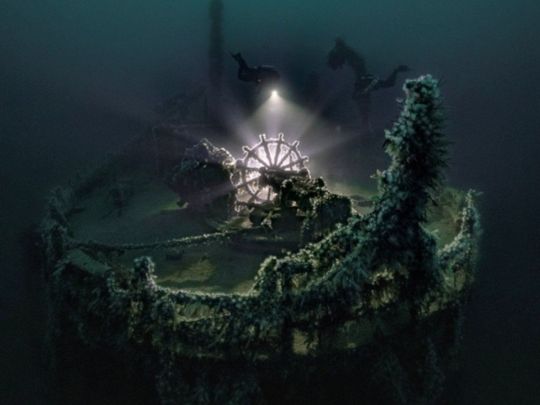
The wreck of the SS Tyrifjord, sunk by the British off Gulen, Norway in September 1944
294 notes
·
View notes
Text
Fethullah Gulen, the Turkish cleric accused of masterminding a bloody attempted coup in 2016, has died aged 83, according to Turkish media reports and a social media post by a movement close to him. The cleric, who had been living in self-imposed exile in the US, died after being admitted to a Pennsylvania hospital, the reports said.
Arrested Eric Adams too late I guess, he accomplished his mission after Micheal Flynn failed
21 notes
·
View notes
Text
Turkish President Recep Tayyip Erdogan’s decision last month to jail Istanbul Mayor Ekrem Imamoglu, his most formidable political rival, touched off the country’s fiercest political protests and boycotts in years. The move was made on charges of corruption and terror but has been characterized by observers and the Turkish opposition as a point of no return for Turkey’s democracy, marking a momentous step toward full-blown autocracy.
This attempt to disqualify Imamoglu from running in the next election significantly narrows the opposition’s path to electoral victory and shows that Erdogan will not allow any credible challenges to his rule. Combined with the erosion of judicial independence, media freedom, and fair election procedures, the ballot box no longer offers a credible path for political change. For many, the streets have become the last remaining arena of resistance.
But while Erdogan has taken significant steps toward consolidating authoritarian rule, Turkey does not have the economic and political structures necessary for full dictatorship. Most notably, Erdogan lacks a fully loyal coercive apparatus that can unconditionally enforce his will—particularly the military, long considered indispensable to robust autocratic regimes.
This places Turkey in a precarious limbo between competitive authoritarianism, where elections and other democratic institutions nominally exist but are undermined by systematic abuses of power, and outright dictatorship. In this transitory phase, the regime will be highly susceptible to public protest but still lack the coercive capacity needed to decisively crush it. The arrangement is inherently unstable and could backfire should Erdogan continue down this path.
Since the mid-2000s, Erdogan has tried to coup-proof the military by reshaping its leadership and purging suspected dissidents. This effort intensified following the violent coup attempt of 2016, which was primarily led by the followers of the late Muslim cleric Fethullah Gulen, who sought to oust Erdogan—and failed.
While Erdogan has succeeded in securing obedience at the top, the result is not a uniformly loyal force but a deeply politicized one at all levels. The difference matters: A loyal military is unconditionally obedient and ideologically aligned with the regime, while a politicized military is fractured, pressured by political expectations, and internally distrustful behind a compliant, unified facade.
By politicizing the military, Erdogan has also jeopardized the future of his own regime. If he continues to escalate repression—particularly if he attempts to deploy the military to suppress protests—he risks overplaying his hand. The military would want to remain neutral, but if pushed too hard to comply with the regime’s demands, it could splinter, with destabilizing consequences not only for Turkey but also for the entire region.
The anti-government protest movements that swept the Middle East in the 2010s as part of the Arab Spring offer sobering parallels. The fate of authoritarian regimes depended considerably on the military’s willingness to stifle dissent. In Tunisia and Egypt, the respective militaries’ refusal to forcefully suppress the protests was a key factor in allowing mass opposition to overthrow entrenched autocrats. In Bahrain and Saudi Arabia, loyal security forces helped monarchies survive by violently putting down demonstrations. And in Libya, Syria, and Yemen, fractured militaries’ divided loyalties between the regime and the opposition catalyzed bloody civil wars.
Turkey is not immune to these dynamics. Since 2016, Erdogan has overseen the purging of more than 125,000 public servants, including thousands of military officers. Pro-government media proudly emphasizes that the majority of those now serving in the judiciary and security services were hired post-coup through overt political vetting. It’s clear what message Erdogan’s regime is sending: The state will no longer tolerate dissent, and the security forces, including the military, will defend the regime.
But this narrative obscures a key reality: While Erdogan has packed state institutions with political loyalists, deeply institutionalized organizations such as the military are not so easily remade.
Militaries and other hierarchical institutes, which have their own cultural norms and organizational structures, tend to moderate political interference. This is particularly true in Turkey, where military socialization occurs early and is both intense and enduring.
Moreover, ideological loyalty cannot be engineered by stacking the ranks with political hires. As I’ve observed in my own research, many recruits come from apolitical backgrounds or engage in what might be called “lifestyle falsification”: adapting their appearance and behavior to meet political expectations without deep internalization of regime ideology. Signaling political loyalty and securing a political reference may help candidates gain entry or get promoted, but they do not guarantee long-term loyalty.
Military recruitment patterns are also shaped by informal social networks that link the armed forces to particular regions and social groups. Just as the U.S. military has roots in specific geographic, cultural, and family milieus, the Turkish officer corps draws from long-standing social channels that resist political homogenization.
When establishing a regime army, autocrats often prioritize building loyalty at the top, selectively promoting ideologically or ethnically aligned generals, as former Syrian President Bashar al-Assad or Venezuelan President Nicolás Maduro have done.
But even this strategy has its limits. Senior officers are drawn from limited-sized cohorts that are deeply socialized with institutional values. Even generals who rose under Erdogan’s watch, such as Tevfik Algan, have nonetheless demonstrated allegiance to the republic’s founding principles, just as conservative figures such as Hulusi Akar did when the military was staunchly secular.
More resistant still are the middle ranks, from captains to colonels, who command tactical units and interact daily with soldiers and civilians. Their embeddedness in professional military culture makes them indispensable but means that it’s difficult to monitor their political loyalties. Even the most sophisticated surveillance systems and networks often struggle to penetrate this layer of command.
Creating a truly obedient military takes time, and even then, defection remains a persistent risk. As the Arab Spring uprisings revealed, even in tightly controlled, long-standing regimes, soldiers may refuse to fire on civilians, as was the case in Tunisia, Egypt, and partly in Syria.
And Turkish officers, despite their historical role in coups, have generally resisted aiding personalist leaders, particularly in moments of mass protest.
The fragility of Erdogan’s control over the military was exposed in August 2024 at the graduation of the Turkish Military Academy.
After the official ceremony, which Erdogan attended, hundreds of newly commissioned lieutenants raised their swords and pledged allegiance not to the president but to the secular and democratic principles of the republic. Their chant, “We are Mustafa Kemal’s soldiers,” was a pointed invocation of Mustafa Kemal Ataturk, the founder of the Turkish republic, and his secular legacy.
Erdogan responded with purges—five lieutenants dismissed, three academy supervisors removed—that were barely approved by a divided army disciplinary board. Algan, the army chief of staff who voted against the dismissals, was soon forced to resign. The episode revealed a military leadership that is far from unified.
Electoral data further complicates Erdogan’s loyalty narrative. In the 2019 and 2024 local elections, despite a campaign steeped in nationalism and militarist symbolism, officers and their families overwhelmingly supported opposition candidates such as Imamoglu and Ankara Mayor Mansur Yavas. In Istanbul and Ankara, precincts near military housing recorded opposition support as high as 80 percent. Even in smaller garrisons, where conservative-leaning enlisted soldiers also went to the ballots, Erdogan’s Justice and Development Party underperformed.
These trends reflect more than political dissatisfaction. The officer corps is uninsulated from national grievances: Military families are subject to the same economic precarity—soaring inflation, housing shortages, and declining purchasing power—that fuels broader discontent.
Beyond cohesion, Erdogan’s politicization of the military is also corroding its effectiveness. This is an important concern for officers, who observe its consequences firsthand. While Turkish forces have conducted competent cross-border operations in Syria and Iraq, much of this success owes to battlefield experience and technological superiority, including drones—not institutional strength and efficiency.
The 2023 earthquake response laid bare the consequences of Erdogan’s coup-proofing efforts. The military failed to mobilize effectively during critical early hours, paralyzed by a chain of command wary of acting without political direction.
And last year’s graduation incident, leading to the discharge of highly decorated officers and the military academy’s five top-ranking graduates, deepened anxieties in the officer corps. Many officers increasingly fear that professional merit is being sacrificed on the altar of political conformity.
Erdogan’s Turkey has long been classified as a competitive authoritarian regime, where elections are real but unfair. The arrests of Imamoglu and the chairmen of the nationalist Zafer party and the pro-Kurdish Peoples’ Equality and Democracy Party, combined with the erosion of electoral integrity, have pushed the country into murkier territory. Elections now appear largely symbolic; even pro-government voices openly admit that power transfer through the ballot box is hardly feasible.
Yet without a uniformly loyal military, Turkey has not become a fully coercive autocracy, either. Turkey now exists in an uneasy midpoint—what might be called an “uncompetitive autocracy” or “semi-coercive dictatorship”—that presents a unique danger.
By politicizing the military and hollowing out the electoral process, Erdogan has sown the seeds of conflict and instability, undermining both regime durability and the prospect of a peaceful transfer of power. In the worst-case scenario, if protests swell and Erdogan clings to power at all costs, Turkey may veer toward the paths of Syria or Libya—protracted internal conflict and chaos—and not Egypt or Saudi Arabia.
Erdogan may yet seek to use the armed forces to silence dissent. But as both Turkey’s history and that of the broader region suggest, the more that autocrats lean on their militaries for repression, the more likely they are to lose control of them.
8 notes
·
View notes
Text
Fenerin maçını 52 yaşında bir Arjantinli ile izleyeceğim, Fener vs Gulen olarak biliyor maçı. Adı Diego, kıraathane projemin bir parçası. Birlikte Avrupalıların dedikodusunu yaptığımızda başladı her şey, dış güçler dedirtene kadar da bitmeyecek. Yavaş yavaş dayım yapıyorum kendisini, mesela Türkiye’deki gündemi takip etmek istediğinde özellikle A Haber’i önerdim. Arada bir apo meclise şakası yapıyor ama olsun, daha Kurtlar Vadisi’ne başlamadık. Ben de arada Ronaldo Messi’den iyi diyorum, helalleşiyoruz.
8 notes
·
View notes
Text
size yanlış yapanlarla ayni masaya oturup eğlenip gulen insanlarınız sizin dümen zaten bizi bozar
7 notes
·
View notes
Text
Ben her zaman cok gulen cok konusan civil civil neseli anormal o kiz olucam
2 notes
·
View notes
Text
Hizmet Hareketi'nin Zorlu Günlerinde Sadakat: Olgunlaşma Süreci

Bediüzzaman Hazretlerinin talebelerinden Tahiri Mutlu'nun "Bir dönem gelecek, o dönemde en büyük hizmet, hizmete ihanet etmemek olacak" sözü, adeta günümüzün bir öngörüsü niteliğindedir. Bu öngörülü söz, şu an yaşadığımız dönemin derinlikli bir analizini sunmaktadır.
Zorlu Zamanların Anatomisi
Gülen Hareketi olarak da bilinen Hizmet Hareketi, kuruluşundan bu yana eğitim, diyalog ve toplumsal hizmet odaklı çalışmalarıyla öne çıkmış, toplumun farklı kesimlerini bir araya getiren ve insanlığa hizmet etmeyi amaç edinen bir sivil toplum hareketidir. Hareket, kurulduğu günden itibaren eğitim kurumları açmış, kültürlerarası diyalog faaliyetleri yürütmüş ve toplumsal dayanışmayı güçlendiren sosyal projelere imza atmıştır. Ancak son yıllarda yaşanan beklenmedik gelişmeler ve zorlu süreçler, hareketin mensuplarını tarihinde görülmemiş büyüklükte bir imtihandan geçirmiştir. Bu zorlu dönemde, Tahiri Mutlu'nun yıllar öncesinden işaret ettiği gibi, en değerli ve anlamlı davranış, üstlenilen görev ve sorumluluklara sadık kalmak, temel değerleri korumak ve hizmet anlayışının özünü muhafaza etmek olmuştur.
Sadakatin Üç Boyutu
Temel Değerlere Bağlılık: Hareketin özünü oluşturan eğitim, diyalog ve hizmet anlayışına sadık kalmak, bu dönemin en kritik gerekliliklerinden biridir. Bu sadakat, hizmeti koruma ve yaşatmanın temel taşıdır.
Prensiplerde Sebat: Dış baskılar ve zorluklar karşısında bile temel prensiplerden taviz vermemek, hareketin özünü ve kimliğini korumak anlamına gelir. Bu, aynı zamanda hareketin gelecek nesillere aktarılmasının da garantisidir.
Değerleri Muhafaza: Bazen en büyük hizmet, mevcut değerleri ve kazanımları korumaktan geçer. Bu, yıkıcı değil, koruyucu ve yapıcı bir tutumu gerektirir.
Bireysel ve Toplumsal Sorumluluk
Bu zorlu süreçte, her bir ferdin üzerine düşen en önemli görev, ahlaki değerlere ve sorumluluklara sadık kalmaktır. Bu sadakat, yalnızca bireysel bir tercih değil, aynı zamanda toplumsal bir sorumluluktur. Hareketin geleceği, bu değerlere olan bağlılığımızla doğrudan ilişkilidir.
Sonuç olarak, Tahiri Mutlu'nun işaret ettiği dönem, sadece bir zorluk dönemi değil, aynı zamanda sadakatin ve değerlere bağlılığın test edildiği bir olgunlaşma sürecidir. Bu süreçten güçlenerek çıkmanın yolu, hizmete ve onun temel değerlerine sadık kalmaktan geçmektedir.
0 notes
Text
yasananlar cok agirdir ama sen neseli,surekli gulen,hareketli kizsindir
12 notes
·
View notes

